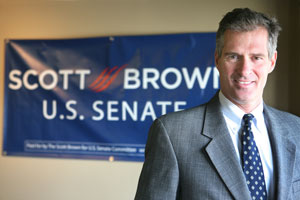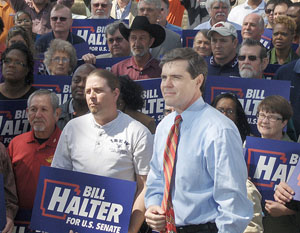Campaign finance reform collapsed in the Senate yesterday after Democrats failed to muster a single Republican vote for the DISCLOSE Act, a bill that would have limited corporate spending on political ads. The defeat leaves the Supreme Court’s unpopular Citizens United ruling the de facto law of the land, giving big business a big stick to wield against its foes during the 2010 elections. Moderate Republicans, some of whom have condemned the Supreme Court ruling and sponsored similar campaign finance reform legislation in the past, characterized the DISCLOSE act as discriminatory. Senator Susan Collins (R-Maine) told the Christian Science Monitor that the bill “carves our certain favored groups, and that’s just not fair.”
Collins’ complaint is ironic given that the bill’s main carve-out, an exemption for grassroots political groups, was created to pacify the National Rifle Association, a staunch ally of Republicans. But the bill wouldn’t have exempted groups such the US Chamber of Commerce. And there’s the rub. The Chamber, which commands the nation’s largest lobbying budget, has emerged as the attack dog of choice for PR-conscious corporations that are too afraid to play political hardball in public. And not coincidentally, it has announced a fatwa against Democrats this election season. Forcing the Chamber to disclose the funders of its political ads, as DISCLOSE would have done, might have hobbled one of the GOP’s biggest allies.
Not surprisingly, Chamber CEO Tom Donohue called the DISCLOSE Act “nothing more than a brazen attempt to tilt the playing field in favor of the incumbent party in this fall’s elections, silence constitutionally protected speech, and abridge First Amendment rights.” But how does a political system that pits wealthy corporations against average citizens create a level playing field? And where does the Constitution specify that concealing the corporate money behind a political attack is an inalienable right? Those are questions that Democrats would be wise to ask voters—assuming they can cut through the all the noise of this season’s corporate-funded political ads.















